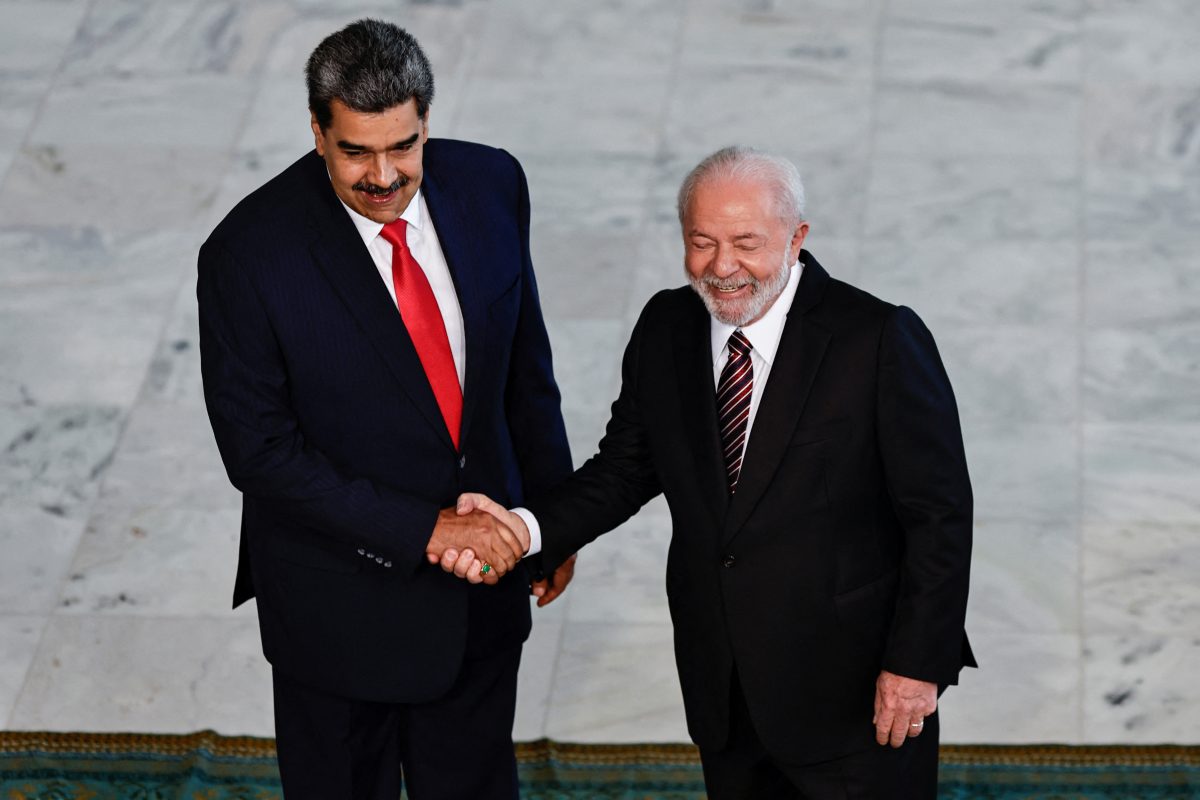CARACAS/BRASILIA, (Reuters) – The presidents of Brazil, Mexico and Colombia called for Venezuela to release detailed voting tallies today, amid a dispute over presidential election results that has sparked protests.
Venezuela’s electoral council proclaimed Maduro, who has been in power since 2013, the winner of the July 28 election with 51% of the vote.
But the country’s opposition says its tally of about 90% of the votes shows its candidate Edmundo Gonzalez received more than double the support of the incumbent president, in line with independent polling conducted before the contest.
The opposition has released detailed tallies on a public website, but the government has so far not shared any information beyond a national total of votes for each candidate.
The current presidents of Brazil, Colombia and Mexico have traditionally been friendlier with Maduro and have adopted a more neutral stance on the election, as countries around the world call for release of full tallies and the U.S. said Maduro should acknowledge a Gonzalez win.
“We call on the electoral authorities in Venezuela to move ahead quickly and let itemized ballot box level results be known publicly,” Brazil, Mexico and Colombia said in a joint statement after a call between their presidents Luiz Inacio Lula da Silva, Andres Manuel Lopez Obrador and Gustavo Petro.
Results should be verified impartially, the countries said, all political actors should avoid an escalation of violence and electoral controversies should be solved via institutions.
“We reiterate our willingness to support dialogue efforts and the search for agreements that benefit the Venezuelan people,” the statement said.
In response to election-related criticism, Venezuela has expelled diplomats from Argentina and five other countries – Chile, Costa Rica, Panama, the Dominican Republic and Uruguay.
Caracas and Lima each expelled each other’s diplomats after Peru recognized Gonzalez as Venezuela’s elected president.
Maduro has also requested a call with Lula, a Brazilian source said.
The disputed election has led to deadly protests that Maduro and his allies in the military have denounced as an attempted coup.
Human Rights Watch said on Wednesday it had received reports of 20 deaths in post-election demonstrations.
The protests had closed shops and caused cuts to public transport around Venezuela, which is mired in a deep and lengthy economic crisis marked by high inflation, but many places were returning to normality by Thursday.
Major government figures including Maduro have said Gonzalez and high-profile opposition leader Maria Corina Machado should be held responsible for the anti-government protests, with some going as far as to call for their arrests.
There have been more than 1,200 arrests of protesters, Maduro said on Thursday, and the government is seeking 1,000 more.
The electoral authority’s declaration of Maduro as the winner “comes with no supporting evidence,” U.S. State Department deputy spokesperson Vedant Patel said. “Meanwhile, Venezuelan opposition and civil society provided decisive evidence showing that Edmundo Gonzalez received a majority of the votes.”
“Any polling station data or results the CNE releases now would require close scrutiny. And so we’re continuing to consult with our national partners on appropriate next steps,” Patel added.
U.S.-based election observers the Carter Center, which sent 17 observers to Sunday’s vote, has said it cannot be considered democratic.
The Venezuelan government has said the electoral authority was the victim of a cyber attack on Sunday. The electoral authority website has been down since Monday.
Venezuela’s Supreme Justice Tribunal on Thursday accepted a request from Maduro for all presidential candidates to present their vote tallies at a session on Friday, Aug. 2, court president Caryslia Beatriz Rodriguez said on state television.
Maduro said on Wednesday that his Socialist party is ready to present all vote tallies and asked the Supreme Justice Tribunal to ensure all parties do the same.
Brazil will take over administration of the Argentine and Peruvian embassies in Caracas – putting in its hands the fate of six Venezuelan opposition figures who are living at the Argentine ambassador’s residence after warrants were issued for their arrests in March.
Argentina has granted them asylum, but the Venezuelan government has not allowed them to safely leave the country.
The six asylum seekers were now under Brazil’s protection, a Brazilian government source said, adding the regional giant’s main concern is preventing civil war in Venezuela.
Celso Amorim, Brazil’s top presidential advisor on foreign policy, relayed concern over the six asylum seekers when he met with Maduro on Monday, according to a source close to him.
“Brazil has asked for protection for the Argentine embassy, and Maduro agreed to that,” a third source, a Brazilian diplomat, said.
A spokesperson for Argentina’s foreign ministry confirmed the Argentine diplomats would leave Venezuela on Thursday, as Argentine President Javier Milei said he had “no doubt that we will soon reopen our embassy in a free and democratic Venezuela.”
Since the election, several opposition figures have been detained, including national Popular Will party coordinator Freddy Superlano, whose party has said it has information he is being tortured.
“(Superlano) is in a good state of health,” Attorney General Tarek Saab said on state television in the first official confirmation of the politician’s Tuesday arrest.
Superlano was “cooperating,” Saab said, without specifying what charges he was being held on.
“He is offering interesting details because we now have identified a larger group … who have participated in the attack on the data update system of the (electoral authority),” Saab said.
Machado said in a Thursday op-ed for the Wall Street Journal that she is in hiding and in fear for her life.





